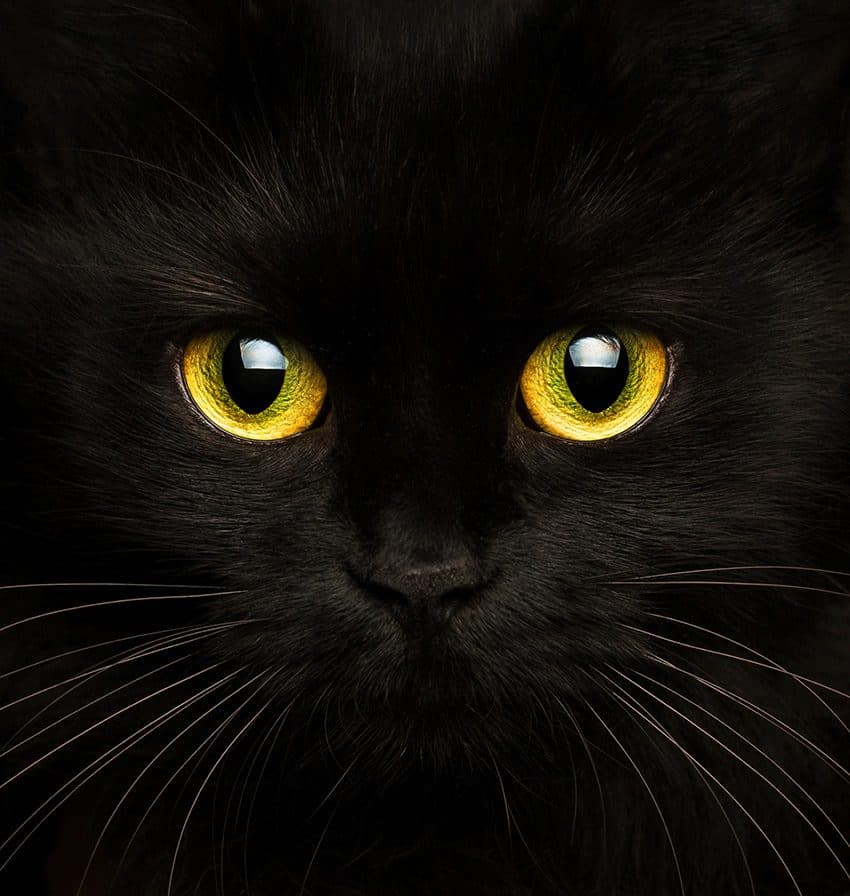
Cats are known for their love of napping, but when they’re not snoozing, they can be extremely active. This can often be at night when their human is trying to sleep. Young cats in particular can drive their human crazy from sleep deprivation. If your cat has decided that the wee small hours are the perfect time to play, what can you do?
The first step in changing this behaviour is understanding why cats do it. Cats are, by nature, nocturnal animals. Their instinct is to hunt and eat primarily at night, just like their ancestor – the African wild cat. Even though studies have shown that domestic cats adapt their activity cycles to their environment and to human activity to become more diurnal (awake during the day), for many cats, the call of the night still dominates. Add to that that many cats are left alone for much of the day and probably spend the bulk of that time sleeping, and it’s no wonder that they become active at night.
The good news is that cats can learn to let their owners doze in peace. To prevent your cat from disturbing you while you sleep, we have some feline-friendly strategies to try out. Firstly, you must stop rewarding undesired behaviour and secondly, learn how to use your cat’s natural cycle to your advantage.
Stop rewarding undesired behaviour
By waking you up, your cat achieves certain goals:
- He has made something exciting happen, even if it is only grumbling or movement
- He gets social interaction, no matter how you respond
- He gets fed
Whatever technique your cat employs – jumping up and down on you, attacking your feet pulling your hair or swiping at your face, if you relent and get up to feed him, you’re simply rewarding the behaviour you don’t want.
The key is breaking this cycle. If you can manage to stop responding to your cat’s attempts to wake you up and get you out of bed for two weeks, you should succeed, but it will take a lot of determination. To help things along, introduce the second part of the strategy.
Use your cat’s natural cycle to your advantage
- Incorporate a variety of enrichment activities, such as interactive feeders which encourage your cat to have to ‘work’ to get their food, to keep your cat busy during daylight hours. The more active your cat is during the day, the more likely that he’ll sleep at night.
- Schedule a few interactive play sessions with your cat during the evening. Use toys that mimic the movement of mice and birds, such as those that dangle and wiggle. Games with ping-pong balls, soft balls and furry mice toys are good for cats who like to fetch. Play until your cat seems tired.
- Feed your cat a main meal just before your bedtime. Cats tend to sleep after a big meal. If your cat continues to wake you during the night for food, it could be worth investing in a timed feeder that you can set to dispense once or twice during the night. If your cat’s hungry, he’ll learn to wait by the feeder rather than bother you while you’re sleeping. Make sure you reduce meal sizes so that your cat doesn’t gain weight.
- Provide your cat with plenty of things to do to keep them occupied if they do wake up at night – from toys and climbing frames to cat-nip infused scratching posts and puzzle feeders.
Always rule out medical problems: If your cat restlessly wanders around your house at night meowing or crying, he may be suffering from an underlying medical problem that causes pain or discomfort. Take your cat to the vet to rule out medical issues.
Sources: icatcare.org, cats.org.uk, pets.webmd.com, conciouscat.net














